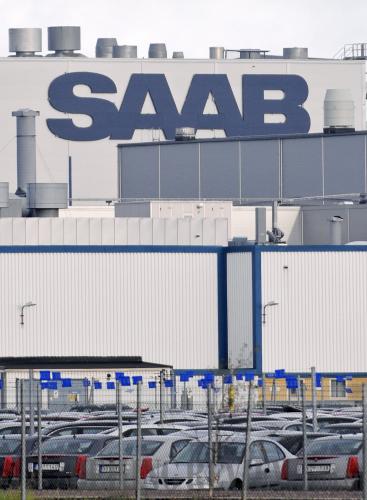|
 |
|
END OF THE ROAD: General Motors Corp. announces on December 18 that it will gradually close manufacturing operations of the Saab brand (XINHUA/AFP) |
Beijing Automotive Industry Holding Corp. (BAIC), the fifth largest automobile firm in China, is joining other ambitious domestic peers taking advantage of the global auto industry downturn to snatch up beaten-down foreign assets.
At a press briefing on December 23, the company announced it had inked an agreement with the troubled U.S. auto giant General Motors Corp. (GM) to purchase certain assets of Saab, a premium Swedish auto brand.
The deal is the latest in a string of agreements between Chinese carmakers and their Western counterparts as Chinese companies look to bolster their global profile.
Under the deal, BAIC, with a 20-billion yuan ($2.93 billion) credit line from the Bank of China, will pay $200 million for intellectual property rights to Saab's 9-5 and 9-3 sedans and some equipment to manufacture those models.
Rather than buying the whole brand, BAIC is looking specifically to acquire Saab's technological assets, said Xu Heyi, Chairman of BAIC, at the press conference. "Some said BAIC spent a fortune simply buying a few Saab models and engines. I don't think that's correct."
Xu noted the deal was the first time a Chinese company bought the intellectual property rights or the "ownership" of a foreign car brand, rather than the use right. The acquisition will save BAIC five to six years of research and development.
At the December 23 press conference, BAIC announced that it would invest 33 billion yuan ($4.83 billion) to build up a "Beijing" brand vehicle in the next three years by making use of the acquired Saab engine technology. The company's long-term objectives include plans to build the independently developed "Beijing" car into an internationally recognized auto brand that will be sold worldwide.
BAIC is a state-owned Chinese auto firm with an annual output of nearly 1 million units, while Saab is known for its sleek and distinctive designs that command a small but loyal customer base.
Saab's fate
The deal has been widely seen as a step forward in BAIC's efforts to strengthen its technology and design, as well as a relief for GM now under pressure to offload financially distressed units.
In 1990, GM paid $600 million for a 50-percent stake in Saab and another $125 million in 2000 for the rest of the company, one of the most popular Swedish brands.
| 